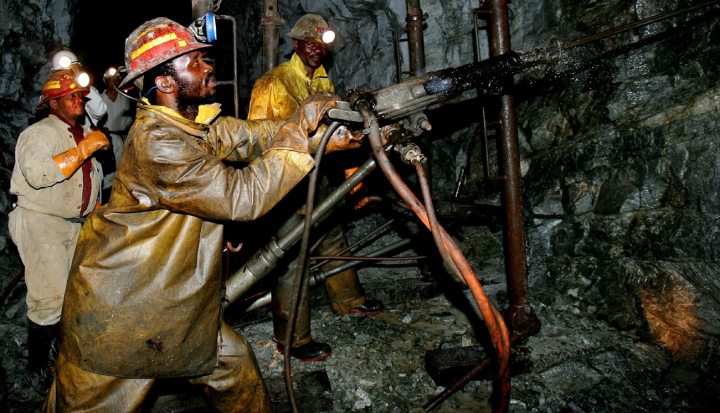Newsdeck
NUM Seeks 15-60 percent wage rises from gold, coal producers

South Africa's National Union of Mineworkers said it would seek pay rises of up to 60 percent from gold and coal producers, raising the prospect of fresh strikes as firms battle higher costs and falling prices in an already heated labour climate. By Ed Stoddard.
Africa’s biggest economy is hoping to avoid the 2012 wildcat strike action at platinum and gold mines that cost billions in lost revenue and production and killed over 50 people.
Mineworkers are mobilizing to assert themselves, with the NUM fighting a challenge to its once near monopoly in the shafts from the Association of Mineworkers and Construction Union (AMCU), which has poached tens of thousands of platinum miners from it in a violent struggle for members.
NUM said it was seeking an entry-level minimum monthly wage of 7,000 rand ($750) for gold and coal surface workers and 8,000 rand for those underground in a submission to the country’s Chamber of Mines, a copy of which was seen by Reuters.
Elize Strydom, the industrial relations adviser at the Chamber of Mines, said the minimum wage for surface workers is currently 4,700 rand and for underground miners it is 5,000 rand, so the demands for the latter are a 60 percent increase.
NUM also said it wanted 15 percent increases for “all other wage categories,” or more experienced and skilled workers.
The chamber of mines said in a statement it had received the “proposals” from NUM and urged all parties to compromise in the talks which will begin around the middle of June.
“We appeal to all parties to explore every option in trying to reach settlement without resorting to damaging industrial action, and to reach agreements that will strike a balance between what is affordable to the companies and meets the expectations of the employees,” the chamber said in a statement.
It gave no further details.
Sliding precious metals prices have raised the pressure on miners as they ready for pay talks. Spot platinum on Friday closed at $1,450 an ounce, down around 35 percent from a record high of $2,240 hit in March 2008, and most South African shafts are losing money at this price.
Gold is down about 19 percent this year, losing its safe haven allure on concern the U.S. central bank will end its extensive stimulus for the U.S. economy.
INFLATION PRESSURE
Mining companies have been awarding above-inflation wage rises over the past decade but with labour now accounting for over half their costs in South Africa, they are reaching a point where this is no longer sustainable for their income statements, especially as power and other costs climb steeply.
But even increases above inflation do not go far for workers at the bottom end of the pay scale who on average have eight dependants and are mostly drawn from poor rural areas.
South African inflation is currently running at just under 6 percent and looks set to accelerate given recent weakness in the rand currency, which investors have sold off because of concerns about labour unrest in the mining sector. Rising inflation especially for food will harden the resolve of workers.
The NUM still represents most workers in the gold and coal sectors, and to head off any challenge from AMCU in those shafts it will need to be seen taking a hard line with management.
The rivalry between the two unions triggered violence that killed over 50 people last year and tensions are running high. An AMCU organiser was murdered last weekend, prompting a 2-day strike at platinum producer Lonmin.
AMCU has not yet submitted its wage demands to platinum producers, who negotiate with unions on a company-by-company basis. But they can ill afford to be generous given current prices for the precious metal.
Anglo American Platinum, the world’s top producer, now plans to cut 6,000 jobs from an initial target of 14,000 as it seeks to restore profits after falling into a loss last year. It is hardly in a position to give big pay rises after scaling back its original plan under government pressure.
Gold and coal producers negotiate through the country’s chamber of mines. South African gold companies include AngloGold Ashanti, Africa’s top bullion producer, Gold Fields , Harmony and Sibanye. Coal producers include Anglo American and Exxaro. DM
Photo: Mineworkers work deep underground at Harmony Gold Mine’s Cooke shaft near Johannesburg, September 22, 2005. (Reuters)


















 Become an Insider
Become an Insider